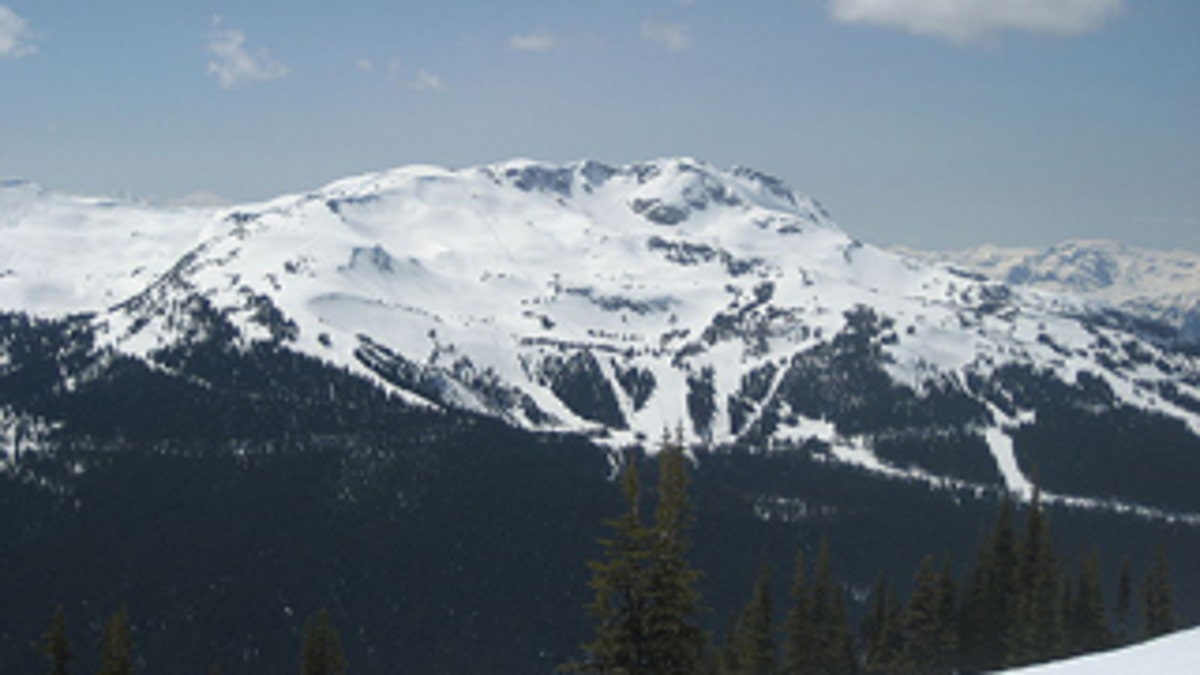
Thick mid-mountain fog. Heavy snowfall. High winds. Fast-moving moisture.
Over the years, the combination of high mountains lying in close proximity to the Pacific Ocean has not been kind to Alpine skiing in Whistler, the resort that will host some of the most highly awaited events at next month's Olympics.
February is generally considered a kind month for the area's climate, but viewers still should be prepared for the possibility of delays and postponements.
"I personally am really worried," said Gian-Franco Kasper, the president of the International Ski Federation (FIS). "We have postponed or canceled so many World Cup races in Whistler. We will have some problems - there is no doubt - but don't forget at the Olympics we have 16 days to postpone the downhill, and even in Whistler in 16 days we'll have time for one good day."
The opening Alpine skiing event is the men's downhill on Feb. 13; the final event scheduled is the men's slalom on Feb. 27.
Kasper's worries stem from a stretch of three consecutive years - 1996 to 1998 - when the World Cup circuit came to Whistler and failed to get a single race off each time. It wasn't just canceling a particular downhill or super-G, it was a matter of scrapping entire weekends.
"The downhill track is on the creek side, and what happens is that quite often you get this mid-mountain fog that comes up from the valley and just sits," said Canadian downhiller and Whistler resident Robbie Dixon. "It's something that can be really difficult to pull off a speed race."
Understandably, the British Columbia resort was removed from the World Cup circuit after that horrid stretch. But it must be noted that those canceled races were scheduled during the area's toughest weather months of November and December.
Two years ago, the World Cup returned to Whistler in February for official Olympic test events, and all of the races got off without a hitch.
"Historically, February and March is the time of year in Whistler when we don't face the same challenges with weather, so we're extremely optimistic based on the statistical data that we have," said Peter Bosinger, the Vancouver organizing committee's sport manager for Alpine skiing.
"There's a whole list of challenges, but we're ready for it," added Bosinger, who was a coach with the Canadian team during the 1990s.
He has a team ready with more than 100 snow professionals equipped to handle whatever Mother Nature throws at Whistler once the Olympic flame is lit. If necessary, he can boost his corps by several hundred.
"We've got more than enough work force to operate on a 24-hour basis, and if we have inclement weather we can put those services to work on the mountain at any time of the day or night," he said.
The Canadian government is providing $9 million in weather forecasting services during the Olympics, and Environment Canada already has installed instruments all over the Whistler mountain that can gather meteorological information at all elevations.
Still, if the weather whips up at the wrong time, there is only so much organizers can do.
Heavy snowfall before races requires organizers to clear as much of the freshly fallen white stuff off the course as possible so racers can be in contact with the specially prepared icy surface they are accustomed to racing on.
If fog rolls in, the best remedy is painting extra blue lines onto the snow to guide skiers down a blind course.
But if conditions are not safe, there will be delays and cancellations.
"There are reserve starts, so if it's windy we can move down. But basically we're going to have to deal with what we can get," said FIS men's World Cup assistant race director Mike Kertesz, who lived in Vancouver and Whistler for eight years.
Of course, weather problems are not new to the Olympics, or skiing in general.
The men's super-G at the 2006 Turin Games was delayed for hours due to heavy snowfall before Norwegian veteran Kjetil Andre Aamodt showed nerve by claiming gold.
Back at the 1984 Sarajevo Games, the men's and women's downhill races were postponed until after the giant slalom events, and there were a number of postponements at the 1998 Nagano Games, too.
This month, the annual giant slalom race in Adelboden, Switzerland - the most highly awaited GS race of the year - was called off after the first run due to enveloping fog.
"In all our world championships and Olympics since 1970 we always have postponements or cancellations of races, so this is absolutely nothing new," Kasper said. "We are used to that. We are an open-air sport, and we have to live and work with the weather."
The trickiest part for the skiers is maintaining their focus during delays. If downhill training sessions are canceled or shortened, experience on the course could come into play.
The Canadian team has had exclusive access to the Whistler course for several seasons.
"We train for that," Canadian Alpine chief Max Gartner said. "That's another reason you got to go see the course, because you don't know how many training runs you're going to get in."
